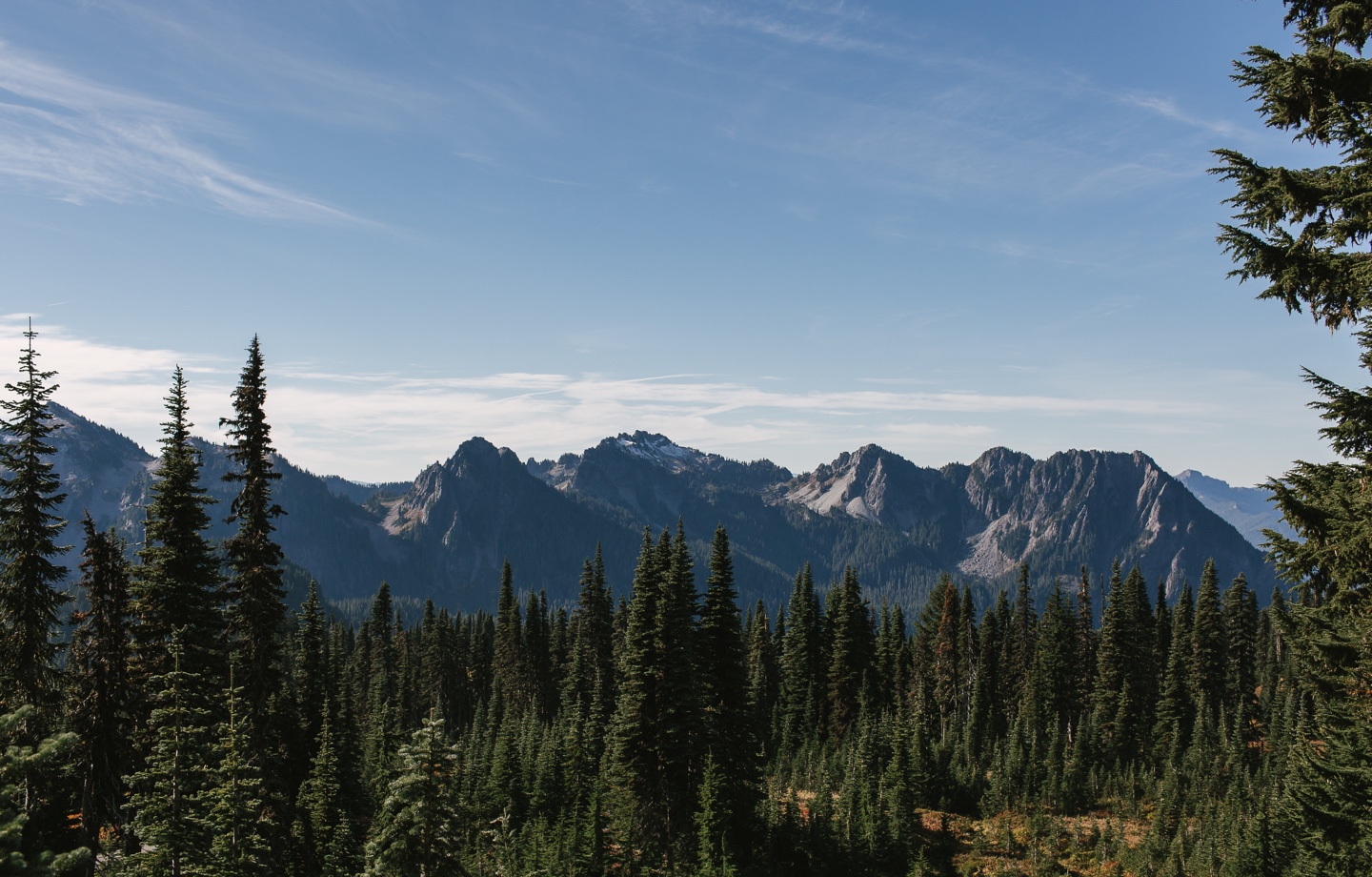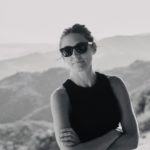Welcome to season two of A Little Green, a podcast from Avocado Green Brands. This season, we invited guests to share stories about how the outdoors have impacted them in positive, life-changing ways. Listen to all eight episodes here.
In episode eight, we hear from Lance Garland, a Navy veteran and openly gay outdoorsman who discovered solace, acceptance, and community in nature.
Here is his story.
Christina Thompson: We reached our final storyteller, Lance Garland, at his beautiful home in Washington state. Lance is a sailor, a climber, a firefighter, a veteran, a writer, and much, much more. And so it wasn’t surprising that his story was so captivating. His words reminded us that nature is always there to support us when we’re ready to start a new chapter.
Lance Garland: My name is Lance Garland, and I live on Bainbridge Island in Washington State. I grew up just south of here. It’s very green, and it’s very gray and cloudy all year round. Lots of mist.
I’m a Washingtonian at heart. I actually like the rain, and I like the mist, and the gray, and the fall and winter, and I love the mountains here. And then, we also have the sea. The Salish Sea is right outside my doorsteps pretty much, and I can go out and sail and swim. It’s pretty awesome.
Growing up, my parents weren’t super outdoorsy people. We did go to the local beaches, but we were not hikers, and we were not campers or anything like that. I grew up in a super religious family. From the outside, it was kind of idyllic, really. I mean, everybody loved the fact that my parents were still together, I was one of four kids, so everything kind of looked perfect and was pretty simple. You go to church, have a big community of people who supported us, and always felt like we had friends. But, for me, it was different. I knew from a very young age that I’m gay and that caused that whole idyllic atmosphere to feel scary.
You never knew what would happen if somebody found out who you were. And the real threat in that environment was that you’d be kicked out; you’d be excommunicated. It was very clear that gay people were not allowed to be part of those groups. It was a scary climate for me, even though I did also enjoy all of the parts of the family life and community life that made you feel like you were involved with something bigger than yourself.
Tune in to Episode 1: Sailing The World to Save a Culture
It’s just, I had that little side note that always kind of threatened to be taken away from that group if I was to be found out. We were fundamentalists, so I was always expected to become a preacher or a missionary, get married at 18 — they’d kind of couple you off, but not going to work when you’re gay.
I knew, I’d say, probably around 12 or 13, that I had to leave; I just knew that. In high school, I was planning what was I going to do? I had to go somewhere, I was leaving Washington. I needed to see the world and find something else. For me, the quickest method for that was to join the military. I joined the Navy while I was still a sophomore in high school.
I left, I think, four or five months after I graduated high school in 2003, and that started my Navy career. I didn’t necessarily think about the fact that the military was not accepting of gay people. At the time Don’t Ask, Don’t Tell was still very much a huge part of the culture. But I didn’t really think about that.
I was still thinking that I could not be gay. I thought it was something I could just choose to walk away from. I was very sheltered as a kid. I didn’t know anything about gay culture. You know, I just knew that I was attracted to men. I was just naive, you know, I joined the Navy to get out and see the world, and I didn’t think about the kind of implications that that would have on my life.
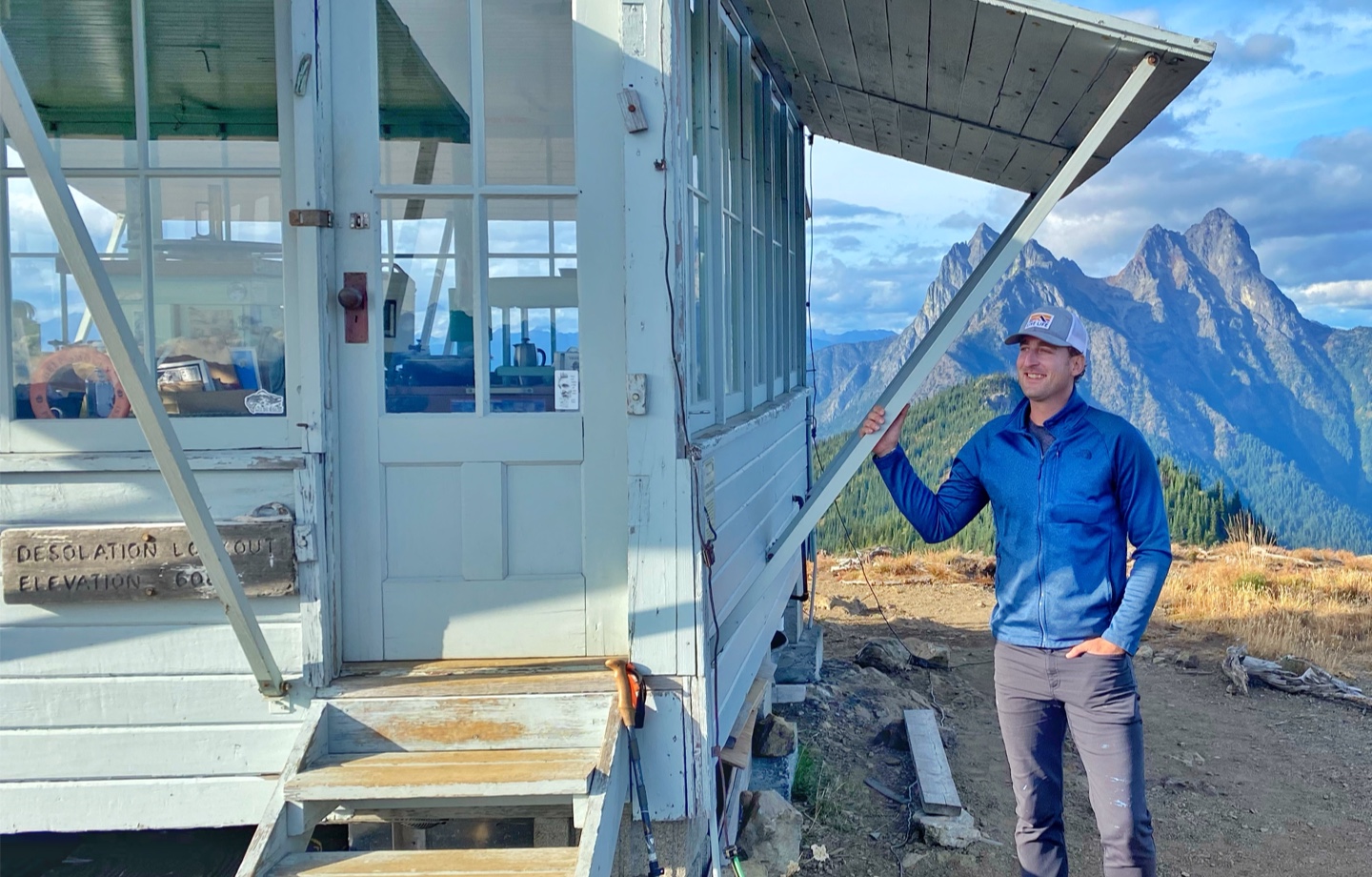
Tune in to Episode 2: The Power of Hiking for Mental Health
I wanted to run away, and I did, and I had no idea what I was going to get myself into.
I got to the Navy and immediately went on a deployment, as they’re called — a six-month voyage across the Pacific. And when I was on that boat, I met my first boyfriend, and that is when everything sort of changed. We were quiet about it. We only told a handful of people. It really kind of reaffirmed within me who I was.
It felt, for the first time, that I was free. I mean, I was on the Pacific Ocean on the ship with this awesome dude who just really enriched my life. It felt right. I was so happy. It was this awesome adventure, but then, reality came crashing down, and we were outed. And then Don’t Ask, Don’t Tell became just the only thing that was happening for us at the time.
I was lucky enough to get out on my own terms before I was kicked out. So I did a four-year term, and I pretty much could not reenlist because of the law of Don’t Ask, Don’t Tell.
I was not naive anymore. All of the fears that I had before then growing up in religion and then joining the military, all those fears they came to pass. I was lost when I got out of the military, and I was depressed and in a really bad place and didn’t trust society very much. I didn’t trust people very much.
Tune in to Episode 3: How Camping Saved a Marriage
I thought, in the wrong circumstance, anybody’s just going to cut you off.
Toward the very end of my enlistment, one of my friends from the ship invited me out on this backpacking trip. We went up to Desolation Peak in the North Cascades, and we spent a couple nights out there and hiked to this lookout. The reason we went up there was because we read a bunch of Jack Kerouac books, and, if you know anything about Jack Kerouac, he was sort of a wild personality, and he battled depression, and he had a rough life, but he really lived a big life too, and I really related to that.
It was absolutely a life-changing experience for me. Being where Jack Kerouac was, but, more importantly, like, being out in the wilderness. We were so unprepared for that backpacking trip — it’s comical. I just showed up with a school backpack and some clothes. I didn’t have any rain pants, so I just brought my snowboarder pants.
I mean, we had cast iron skillet. It was absurd. The gear we had, it was so heavy. When we woke up in the morning, our sleeping bags were wet. But that’s not the stuff you really remember in the long term. You remember that beautiful breakfast. You remember standing on the mountain top and feeling the alpine air running across your face.
There was snow up there. I remember making boot prints in the snow and seeing the fire lookout and seeing peaks upon peaks upon peaks. Mountain ranges like you’ve never seen before; like, that’s what you remember. And that’s what you feel when you’re there. You don’t feel the bug bites or you know the fact that you’re a little soggy.
It’s freeing, it’s exhilarating, it’s scary. I mean, you feel so alive. You realize really quickly that no one’s doing anything for you. You have to help yourself. And so, for me, being out in the wilderness was my first experience of self-care.
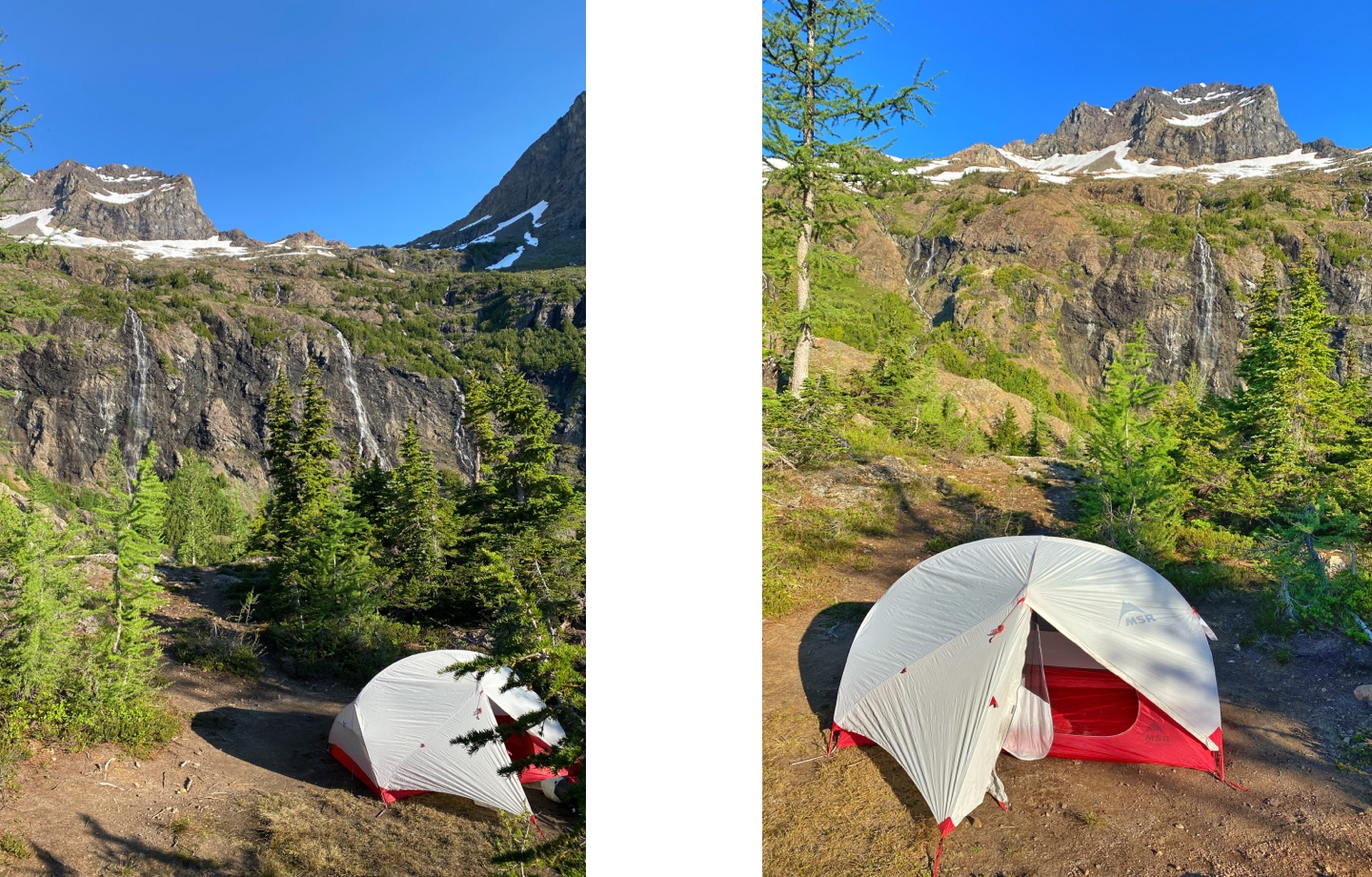
Tune in to Episode 4: How an Endangered Butterfly Inspired Hope and Healing
Before that, I had a lot of self-loathing — a lot of self-hatred. I had so much messaging and teaching that I wasn’t worthy. I was taught to hide. I was taught to, to lie and to not care about my life. Being out in the wilderness, and building my own fire, and putting together my home, raising my tent, cleaning my gear, taking care of my gear when it broke.
Just all those things really taught me that I’m capable of taking care of myself, and that I’m worthy of taking care of myself, and that no one’s gonna do it for me, and that’s okay. And that was a really empowering thing, too because every decision had been made for me up to that point in my life. Being out in the wilderness gave me the opportunity to choose for myself, and nature gave me all of those things back. And is something for me that was revolutionary.
I was very lucky that I didn’t get discharged with a dishonorable. Because I got discharged with an honorable, I got college tuition paid for; I got the GI Bill. And that was a huge factor in my life to give me something to do when I got out. I wasn’t totally sure what I was gonna do in college. I took a year off. I was lost. I’m like, “I don’t want to go to college.” I didn’t know what I want to do. I’m out in the woods, and I’m camping every weekend during the spring, summer, and fall, and thinking about what I’ve been through. And then I started to realize, I can tell this story. I need to tell this story. I have to tell these stories.
Tune in to Episode 5: Using Poetry as a Form of Climate Activism
So I went to the University of Washington for a creative writing degree so that I could have the tools to speak. That was so important because I never got to speak. I didn’t speak as a kid. I didn’t get to speak in the military. I wanted to figure out how do you say the things that you need to say?
You know, first I started writing because I felt like this had not happened to anybody. I felt like I was the only one, and it felt so isolating. And then, what I realized is that this happened to so many people. Just with Don’t Ask, Don’t Tell alone, I think 10,000 service members got kicked out; and that was humbling, but it also gave me community to realize I’m not alone in this.
And that’s why I write about nature so much. I think that that’s a great connector for all of us.
Going out to nature for me was such a solitary experience. I might go out with one or two people when I started. I’d go out by myself a lot and that was probably because I was working through so much. But, in recent years, I’ve become part of communities. There’s so many people like me out there doing the same things.
And when you go out there, and you get to talk to them, and you get to see how their lives are changing because of their involvement with nature and their connection to it, it’s so empowering.
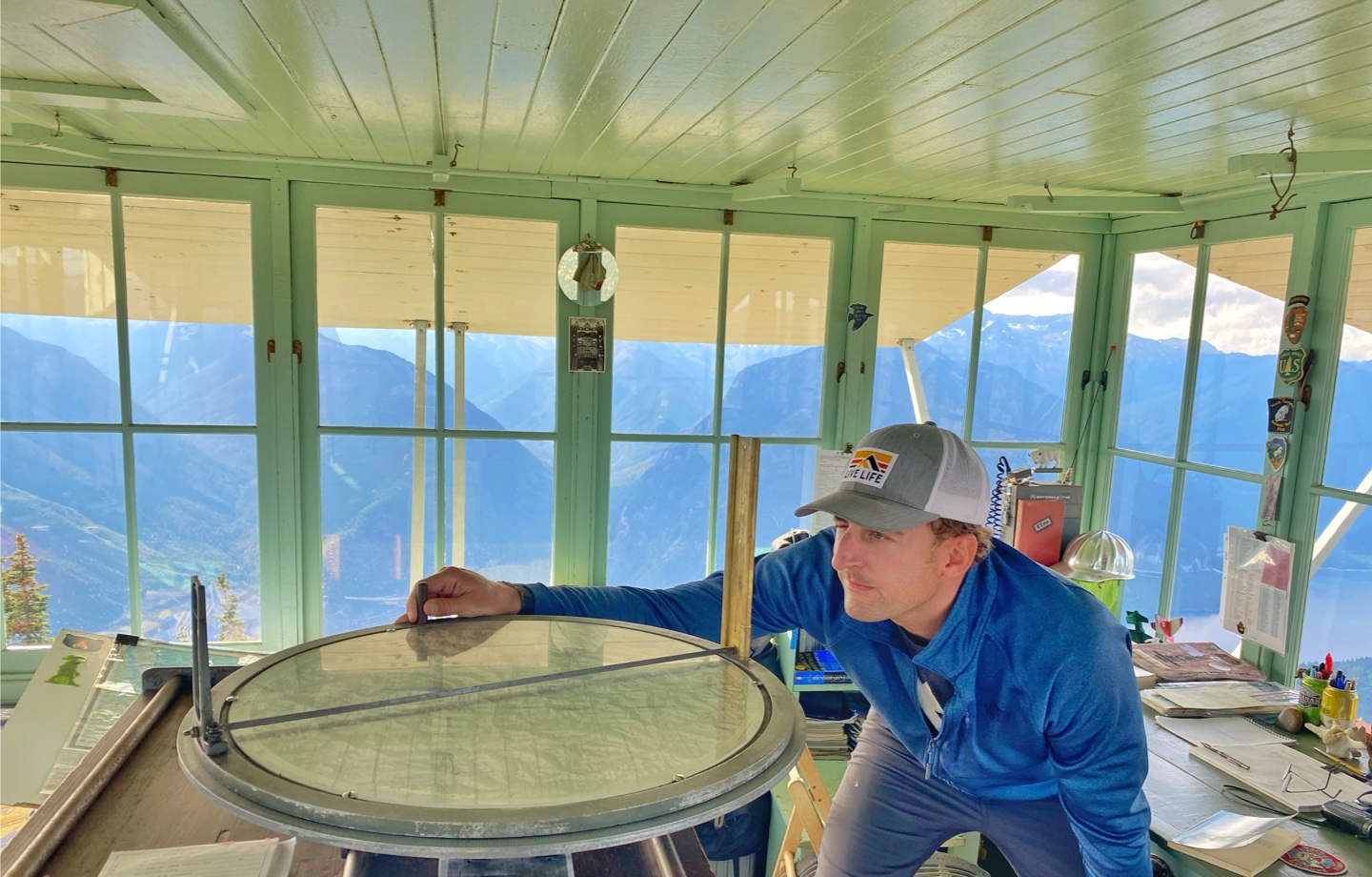
Tune in to Episode 6: Making Nature Accessible With Birding
I think that the promise of religion, and maybe the selling point of it, is that you’re part of something bigger than yourself. You’re part of a community of people that love and care for you. And, for me, I couldn’t keep that in that community growing up because I wasn’t like them. And so I, I did always want to find a community somewhere, and the outdoor community that I’m surrounded with now, and the people in my life, they are that community.
And it’s there because I was authentically myself, and I shared with the world who I was. This community wouldn’t exist for me right now if I didn’t. You know, I would’ve been hiding and silent and self-loathing. In nature, I feel at home. I know that I’m a natural part of the landscape. I know that it is mine.
It’s my home. I am part of it, and it is part of me. And so, more than anything, nature gave me roots. It gave me a place to exist, and it didn’t put any boundaries on who I was. It just accepted me as I was.
Tune in to Episode 7: Cultivating Happiness With Organic Farming
Christina Thompson: You can read more of Lance’s beautiful stories at lancegarland.com, and, as always, you can find more details about our show at alittlegreenpodcast.com.
Well, that’s it for this season. You know, one of the best pieces of feedback we received from listeners on the heels of season one was how the personal stories were the moments that really stood out for them. That storytelling and the sharing of those intimate experiences really can be one of the strongest tools that we have in the ongoing effort against climate change and saving our planet. So share yours and keep sharing. I know we will. Thank you for listening.
A Little Green is an Avocado Green Brands podcast.

Shop Pillows
The Essential Organic Pillow Collection
Gentle, breathable, non-toxic support.




